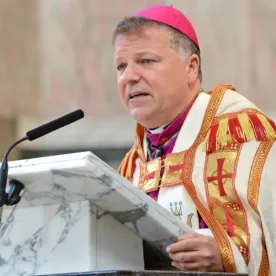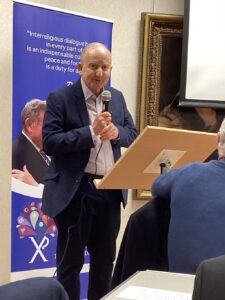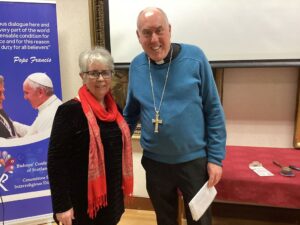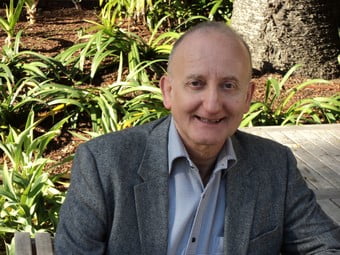2025 Symposium
Our Speakers – Dr Maureen Sier, Director of Interfaith Scotland, Martha Ines Romero, General Secretary of Pax Christi, Ravinder Kaur Nijjar, Religions for Peace
On March 7th and 8th the Bishops’ Committee for Interreligious Dialogue held its annual symposium at the Conforti Institute in Coatbridge. The focus was on peace building in interreligious dialogue.
The main speaker on Friday evening was Martha Ines Romero who is the General Secretary of Pax Christi International, a Catholic peace movement, with 120 member organisations worldwide which promotes peace, respect of human rights, justice and reconciliation throughout the world.
Set up at the end of the Second World War, Pax Christi believes that peace is possible and that the vicious cycles of violence and injustice can be broken. It’s work for peace and advocacy for non-violence action are admirable but not straightforward. Should a country defend itself? Are boycotts really non-violent or are they masking an attitude of non-violence? How do we avoid a black and white response to conflicts without knowing the history of the people as is often the case.
Those of who work in the field of interreligious dialogue know that there are times when years of hard work and relationship building can be out under stress by events far beyond our influence, never mind control. Wars and conflicts get simplified down to the one religious group at odds with another. This can lead to difficult conversations between people of different faiths here in Scotland.
Someone with a wealth of experience in managing these difficult dialogues was out main speaker on day two of the symposium, Dr. Maureen Sier, Director of Interfaith Scotland. She spoke about her experience of difficult dialogues in Scotland. This made us face the nitty gritty, not only of dialogue but also of peacebuilding. Maureen suggested that conflict in Scotland can be caused by three things:
- When global geo-politics is driving communities apart
- When the media amplifies a story of division and causes communities to be suspicious or worse towards each other
- When the topic under discussion is a contentious one
She then shared with us some of her experiences and the insights she has gained from them.
Firstly, she spoke about her engagement in intra-faith dialogue between the Ukrainian and Russian Orthodox Churches. Prior to the recent Russian invasion of Ukraine there was already tensions running high in Ukraine because of conflict in the Donbas and Crimea region as far back as 2014 (Ukrainians highlighting that this was a Russian invasion. Into this conflict between Christian churches who found themselves on opposite sides, she invited both parties to reflect on the words of the Beatitudes, not least the lines “Blessed are the peacemakers, for they will be called children of God.” The impact of studying scripture together allowed them to make commitments to work together, and friendships were made that developed over the 4 days.
She also spoke about the series of “Courageous Conversations” organised by Interfaith Scotland and Interfaith Glasgow, to address the strain being put on Jewish/Muslim relations here in Scotland in light of the events in Israel/Palestine over the last 2 years.
The message, however, remains the same. Dialogue is the way forward, provided you can create the safe space and the conditions required to give it the prospect of success.
Our symposium concluded, (on International Women’s Day) with a panel session where our two keynote speakers were joined by another champion of interreligious dialogue Ravinder Kaur Nijjar. Ravinder spoke eloquently about the Sikh understanding of both inner peace and peace building. Similarly both Maureen and Martha shared the understanding of faith from their own religious point of view. In a lovely moment of coming together, Martha share with Ravinder that she actually sings a Sikh meditation in Spanish as part of her own meditation routine.
The conversations among participants showed a recognition of this and a growing understanding of the importance of interreligious dialogue as a tool for peace. It is something that takes us beyond talking about peace to engaging in it. And to engage in it with integrity we need to seek an inner peace and compassion through our own religious practice.
As Pope Francis said: “The path of interreligious dialogue is a shared path to peace and for peace; as such, it is necessary and irrevocable… it is an urgently needed and incomparable service to humanity, to the praise and glory of the Creator of all.”





















